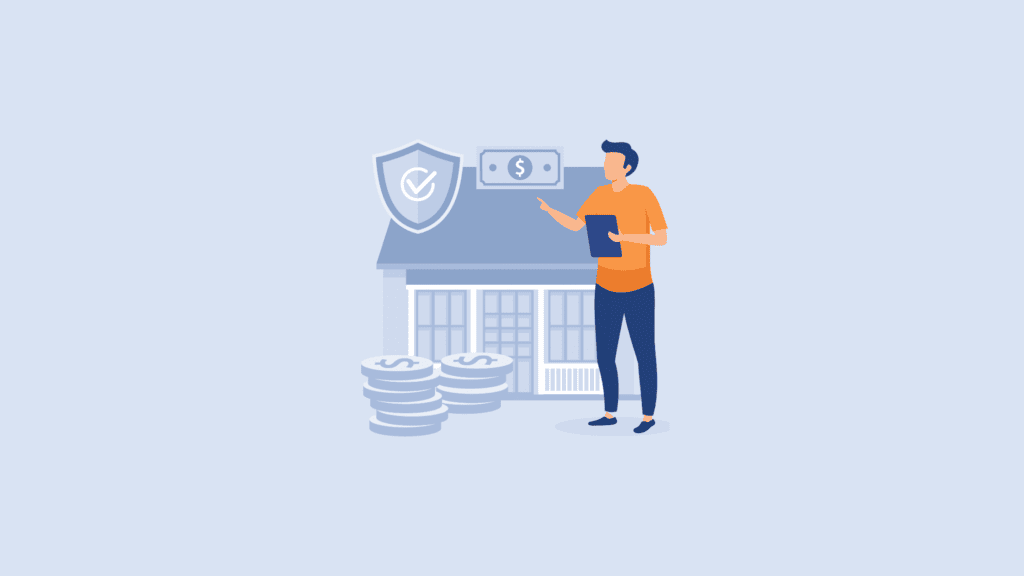How Does Inflation Affect Real Estate?

So you’ve been looking into purchasing your first home and have finally saved up enough to make the purchase, only to find that property values have skyrocketed since you first began house hunting. What’s going on with real estate inflation?
This article will explain you the basics of inflation in real estate.
What is Inflation in Real Estate?
When we hear the word inflation, we think about how it affects every single aspect of our lives, from the food we eat to the clothing we wear to how much money we have in our bank accounts.
But do you know how inflation affects real estate?
Inflation in real estate refers to the rising value of properties over time. As the cost of building materials, labor, and other expenses go up, so does the cost of real estate, which includes homes and other structures built on land that’s considered real estate.
Also, because the supply of real estate remains relatively fixed, as more and more people compete to buy real estate, the demand and prices can increase over time. It’s measured by comparing current sales to those of a base year.
For example, if a home today sells for more than it did in 2018, that increase would be real estate inflation.
Do You Need to Worry About Inflation?
The fear of inflation in real estate, otherwise known as housing inflation, is widespread. But whether you need to worry about it depends largely on where you are in your career and what you want out of a home.
Many baby boomers do not feel threatened by real estate inflation because they want to move somewhere smaller or different than their current home, regardless of price—and those are typically situations that call for purchasing a home anyway.
However, if you’re trying to buy your first home and don’t have much savings, then rising prices can be a serious concern. If you’re just starting, then yes: You should definitely be worried about inflation in real estate.
How Does Inflation Impact Real Estate?
Inflation in real estate impacts buyers, sellers, renters, and homeowners on many levels. When inflation takes place over a while, it affects a variety of factors related to real estate including supply and demand, stability of occupancy rates, average home value appreciation, and purchase price.
Understanding how these all play out can give you an edge in buying or selling properties at exactly the right time.
Protect Yourself From Inflation
Monitoring inflation in real estate prices can help investors gauge how much a property will be worth and whether or not they’re getting a good deal. By comparing current properties to older ones, and using inflation as a guide, you can better predict future prices so you don’t overpay for your home.
While an increasing price tag might seem like a good thing, it might not be such great news if you’re trying to sell and move somewhere else. If inflation outpaces demand, you could end up stuck with a property that doesn’t increase in value but does increase in cost.
To protect yourself from inflation when buying a home, consider waiting until after interest rates have risen before making an offer on any given house—it might save you money down the road.
On a Final Note
If you’re not a savvy investor, inflation in real estate might be a term that you don’t fully understand. But it can be an important factor in understanding your ability to profit when investing in homes.
Inflation, a good or a bad thing- remains to be seen, but it is important for you to remain up-to-date on current trends to make educated decisions regarding your next real estate investment.
For now, you might have an accurate idea of the basics of real estate inflation. If you still have questions or queries, feel free to contact info@roodland.com and they will get back to you with the best possible solutions.

Fire Norms Documented in National Building Code (NBC)
Read this article to find about the basics of Real estate inflation!
Variants of GRIHA Rating System
Read this article to find about the basics of Real estate inflation!
Growth in Real Estate May Be Hampered by Rising Raw Material Costs
Read this article to find about the basics of Real estate inflation!
Impacts of 5G Technology on Indian Real Estate
Read this article to find about the basics of Real estate inflation!
How to Make Your House Look Rich?
Read this article to find about the basics of Real estate inflation!
10 Houseplants to Brighten Up Your Home
Read this article to find about the basics of Real estate inflation!
6 Clever Ways to Hide Cords in Your House
Read this article to find about the basics of Real estate inflation!

















